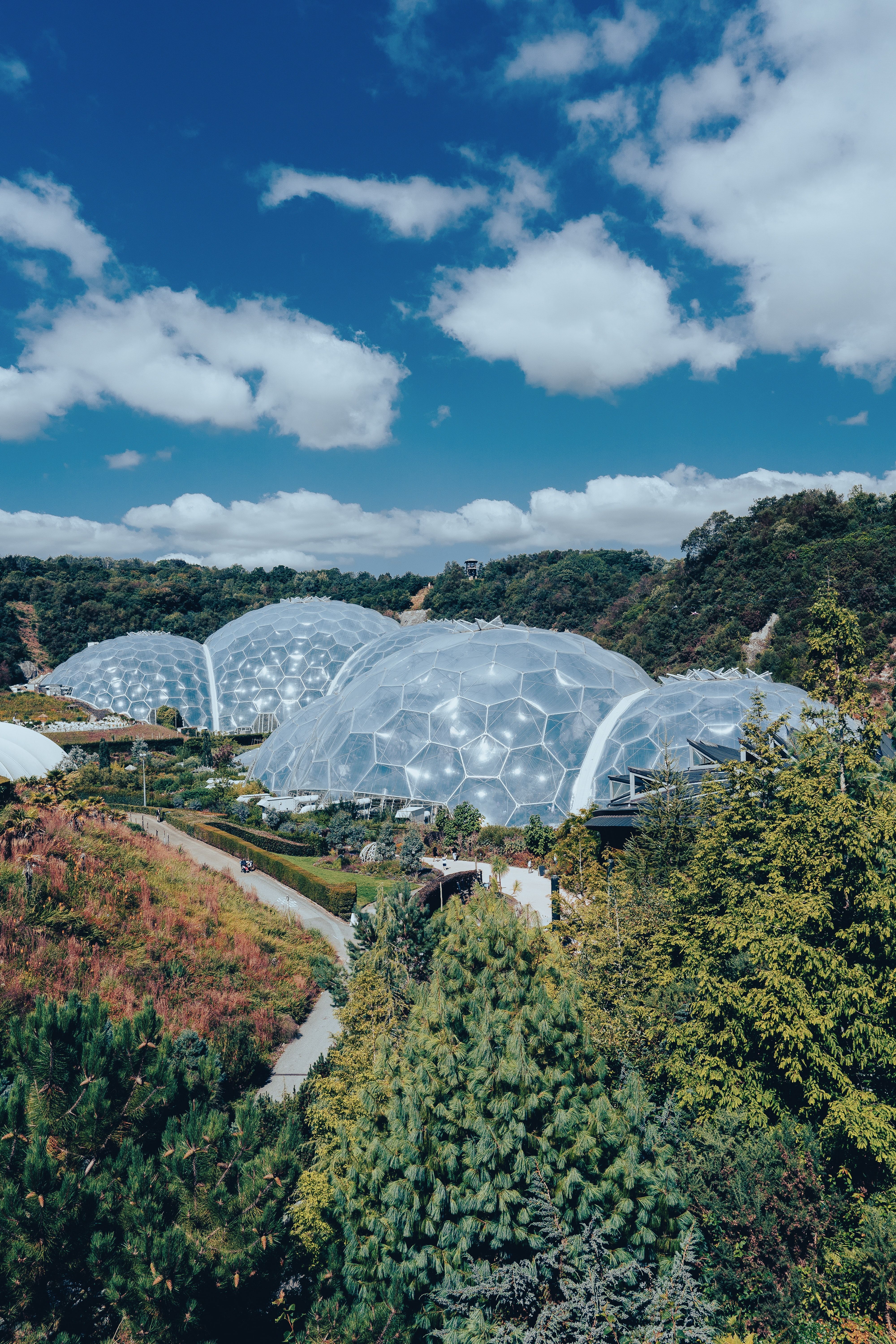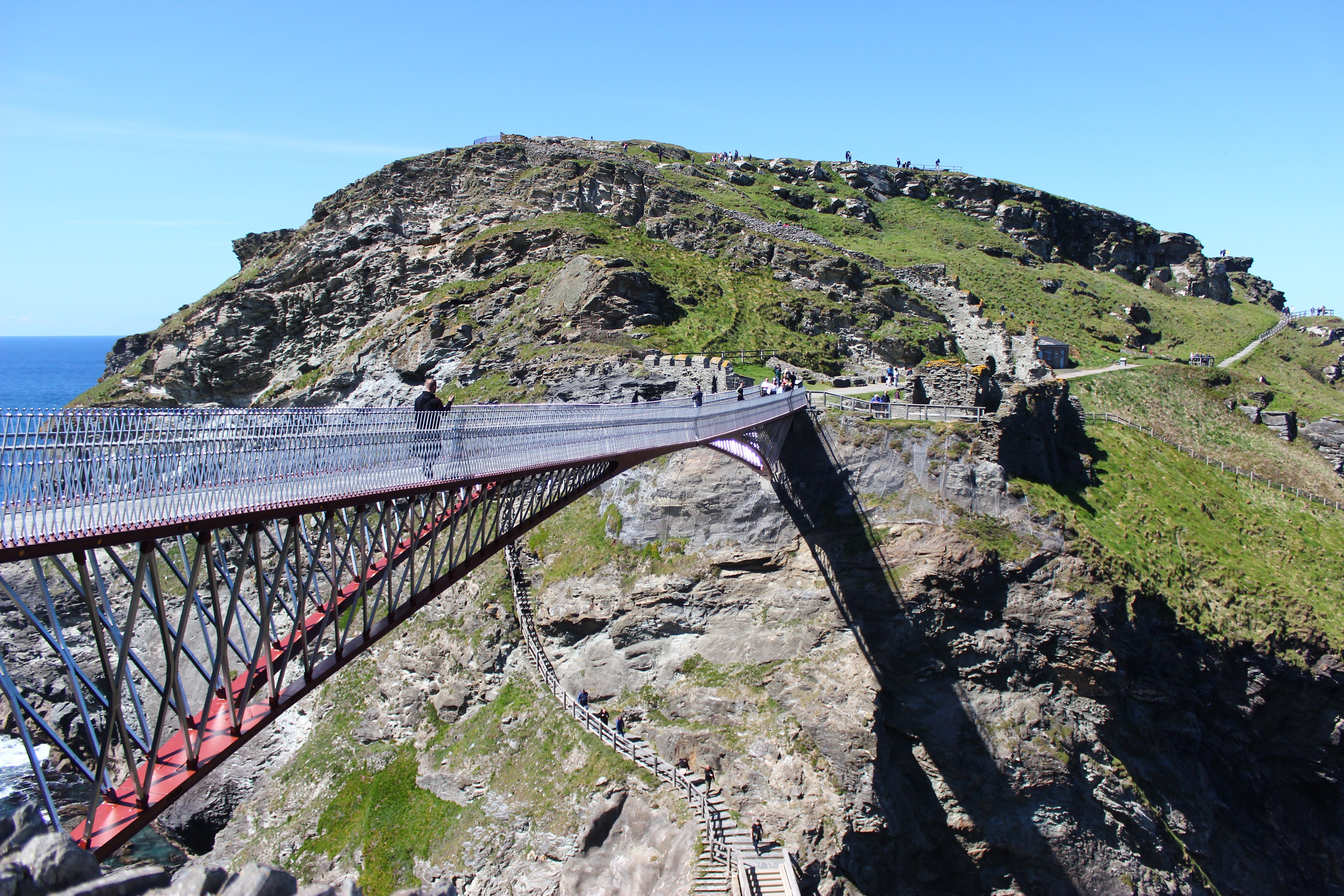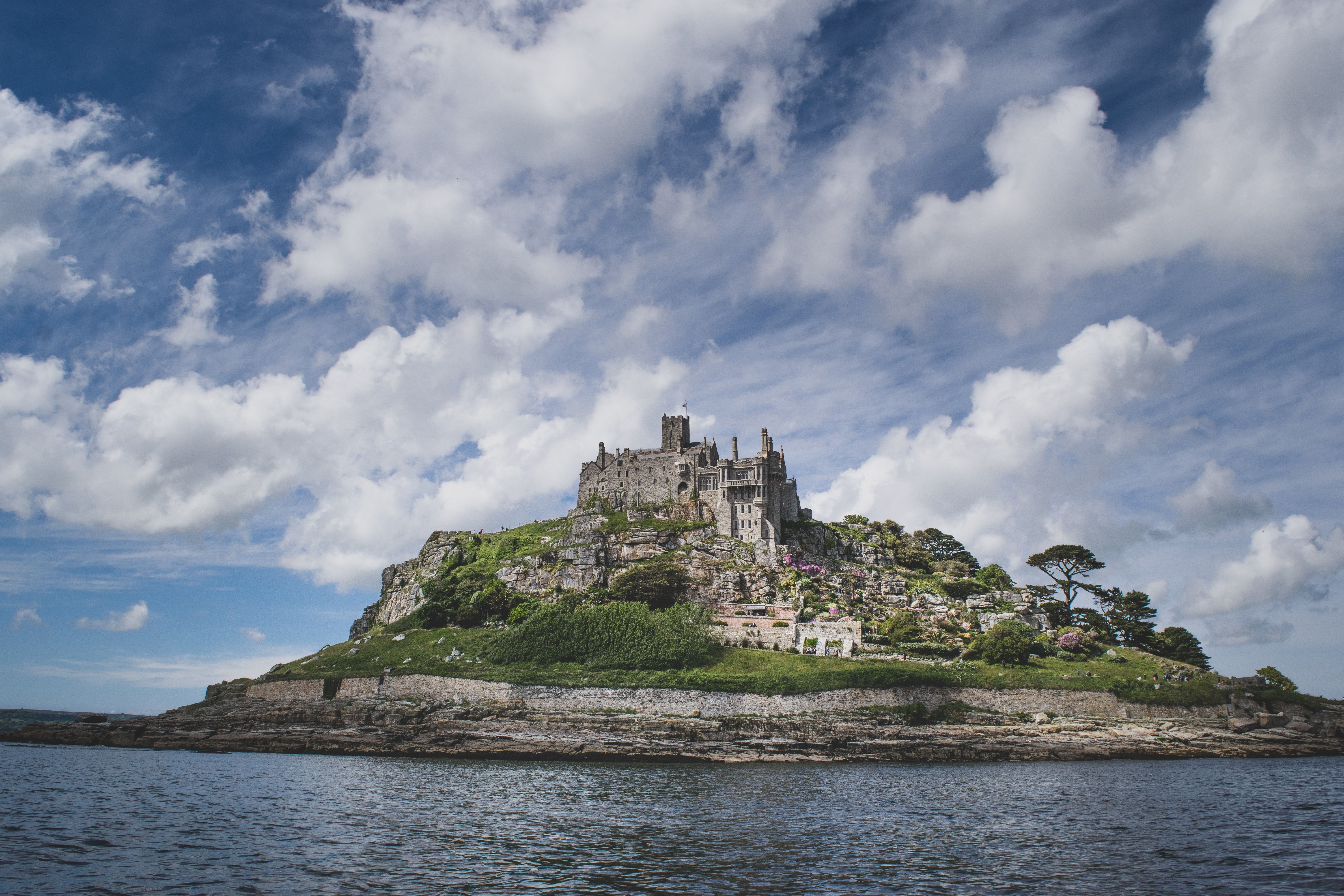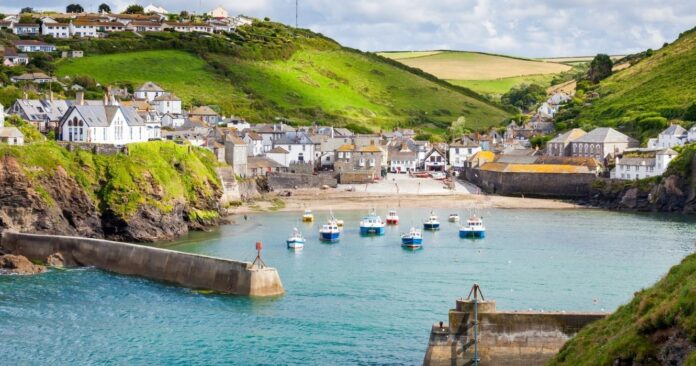Cornwall, in the far southwest of England, has long been considered one of Britain’s most beautiful areas and is known for its great beaches and quaint villages. In recent years, it also has emerged as an eco-tourism destination worthy of any traveler’s bucket list. That’s thanks to the Eden Project, an experimental garden concept where eight giant bio-domes recreate global climate systems and house tens of thousands of plants from around the world. Basically, it’s a huge greenhouse.
THETRAVEL VIDEO OF THE DAY
The project began in the mid-1990s when organizers bought a large clay pit in the town of Boldelva, Cornwall, and began transforming it into the series of biospheres visitors see today. About one million people visit annually, and the numbers keep rising as more travelers become aware of eco-tourism destinations. In fact, the global ecotourism market is expected to grow from an expected $185 billion in 2022 to $299 billion in 2026, according to the Ecotourism Global Market Report 2022. Here’s what visitors should know about Cornwall’s eco-tourism offerings.
The Eden Project’s Biomes Reveal Global Landscapes
The Eden Project includes several transparent biomes that house many thousands of plant species across the five-acre site.
In the Mediterranean Biome, visitors can explore species from not only the Mediterranean but also California, South Africa, and Western Australia.
Flowers, olive trees, and grapevines are among the plants found in the biome, which is kept at temperatures similar to the Mediterranean — up to about 77 degrees Fahrenheit. There are more than 1,000 varieties of plants in the dome.

The Eden Project is made up of eight biomes in Cornwall.
In the Rainforest Biome, temperatures are kept higher, up to about 95 degrees to emulate a rainforest climate.
Plants in this biome hail from the tropics to Southeast Asia, West Africa, and tropical South America. It features a canopy walkway where visitors can enjoy great views of the entire biome structure.
Outdoor Gardens offer 20 additional plant-based exhibits. The Eden Project also has educational and arts programs throughout the year. A zipline adventure is available in the outdoor areas of the project, too, run by an outside company not affiliated with the Eden Project.

Visitors can walk across a suspension bridge inside the Eden Project.
Admission to the Eden Project is seasonally priced, from about $35 per adult in off-peak months to about $45 in peak season. A cafe is available in the visitor center.
Visitors can reach Cornwall by train from London and other UK cities. Located about 270 miles southwest of London, direct trains from London Paddington Station will bring visitors to Cornwall in about five hours. The Eden Project is funded by the UK Millennium Commission.
Manors, Pubs, And Spa Hotels Are Among Lodging Choices
Accommodation choices near the Eden Project include properties in nearby towns that are a short drive from the site. Here are some options:
Boscundle Manor
- Cost: $$
- Address: Boscundle, St Austell
- Amenities: Heated indoor swimming pool, bar and spa. Free parking and free WiFi
The Britannia Inn & Waves Restaurant
- Cost: $
- Address: St Austell Road, Tregrehan
- Amenities: Breakfast included, playground, nearby beaches
White Hart Hotel
- Cost: $$
- Address: Church Street, St Austell
- Amenities: Downtown location, spacious rooms, full breakfasts, bar, free parking, free WiFi
Rashleigh Arms
- Cost: $$
- Address: Charlestown Road, St Austell
- Amenities: Waterfront rooms on the English Channel, modern decor, free parking, restaurant/bar, and alfresco dining available

Thousands of plant species thrive at the Eden Project.
The Carlyon Bay Hotel and Spa
- Cost: $$$
- Address: Sea Road, St Austell
- Amenities: Stylish decor, spa, golf course, restaurant, indoor swimming pool, water views
There’s More To Explore In Cornwall
While the Eden Project has made Cornwall one of the best eco-friendly places to visit, the region has many other attractions and historic sites to explore.
Nature lovers will want to visit the Cornish Seal Sanctuary, a charity that rescues and rehabilitates gray seal pups found along the Cornish coastline. Between September and March, the facility rehabilitates more than 70 seal pups for various reasons.
The sanctuary also helps other animals in distress, including penguins, otters, and even goats. The facility is located in the village of Gweek.

A bridge leads to the historic site known as Tintagel Castle.
According to legend, Cornwall is known as the site of Tintagel Castle, the birthplace of King Arthur.
Situated on the north Cornwall coast, the area lures visitors to its mysterious archeological sites, castle ruins, and legendary caves, where travelers can decide for themselves whether the destination was really home to King Arthur and Merlin.
The site is run by English Heritage and there’s an admission fee of about $18.

St. Michaels Mount is a popular attraction in Cornwall.
St Michaels Mount is a tidal island in Mount’s Bay, Cornwall, and home to an ancient castle. Connected to the mainland by a causeway, it’s accessible to walkers from the coastal town of Marion at low tide.
Visitors also can visit by boat when the tide is in. The castle and its grounds are open to explore. Admission is about $20.
Fans of the hit TV series “Poldark” will want to stop by the village of Charlestown, Cornwall, where some of the show was filmed, particularly around the harbor area.
Located on the South Cornwall coast, the harbor offers tours of the tall ships docked there, as well as the Charlestown Shipwreck Museum.










